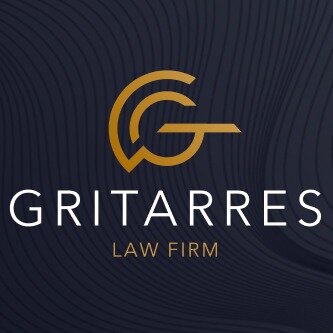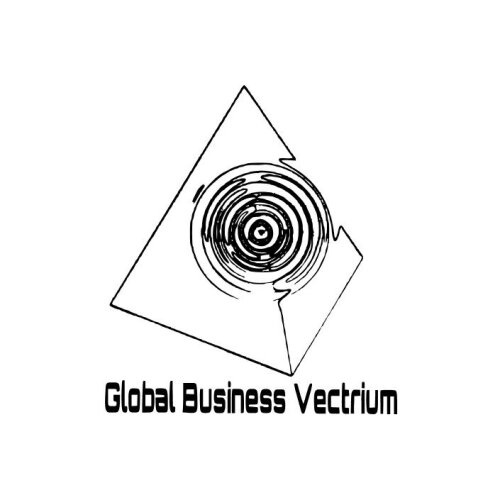Best Renewable & Alternative Energy Lawyers in Armenia
Share your needs with us, get contacted by law firms.
Free. Takes 2 min.
Or refine your search by selecting a city:
List of the best lawyers in Armenia
About Renewable & Alternative Energy Law in Armenia
Armenia has made significant strides in promoting renewable and alternative energy as part of its broader efforts to ensure energy security and environmental sustainability. The country relies heavily on imported fossil fuels, making the development of domestic renewable energy sources a key priority. The Armenian government has implemented several initiatives to attract investment in solar, wind, hydropower, geothermal, and biomass energy. Legal frameworks are evolving to facilitate the growth of these sectors and encourage private and public partnerships. If you are considering investing in, developing, or operating renewable energy projects in Armenia, understanding the unique legal environment is critical.
Why You May Need a Lawyer
A knowledgeable lawyer can help you navigate the complex legal requirements associated with renewable and alternative energy in Armenia. Common situations where legal help may be beneficial include:
- Reviewing and negotiating investment agreements for renewable energy projects
- Securing permits, licenses, and approvals from government agencies
- Understanding land use requirements and resolving property rights issues
- Complying with national and local environmental regulations
- Handling disputes related to energy supply and grid connection
- Advising on financing, subsidies, and incentives for renewable energy
- Ensuring compliance with technical standards and safety requirements
- Assisting foreign investors to navigate specific rules and restrictions
An experienced attorney ensures your business remains compliant and your investments are protected from potential legal pitfalls.
Local Laws Overview
The Armenian legal framework for renewable and alternative energy is shaped by several national laws and regulations, as well as international agreements. Key aspects include:
- Law on Energy: This establishes the legal basis for energy production, transmission, and consumption, including provisions specific to renewables.
- Law on Energy Saving and Renewable Energy: Provides incentives and establishes procedures for licensing, construction, and operation of renewable energy installations.
- Feed-in Tariffs (FiTs): Armenia applies guaranteed purchase tariffs for electricity produced from renewable sources, which helps reduce investment risk for developers.
- Environmental Assessment: All renewable energy projects must comply with environmental impact assessment (EIA) procedures and obtain relevant approvals.
- Licensing and Permitting: The Public Services Regulatory Commission (PSRC) oversees licensing for energy generating facilities, including small and large-scale renewables.
- Grid Connection Policies: Detailed regulations exist regarding the technical and legal processes for connecting renewable installations to the national grid.
- Land Use and Zoning: Renewable energy projects must comply with national and municipal land use plans, and may require additional approvals for land allocation or expropriation.
Armenia’s commitment to the European Union Energy Community also shapes its regulatory approach, harmonizing local laws with European standards.
Frequently Asked Questions
What types of renewable energy are supported by Armenian law?
Armenian law supports solar, wind, hydro, geothermal, and biomass energy. Feed-in tariffs and other incentives are available particularly for solar and small hydropower projects.
Who is responsible for regulating renewable energy in Armenia?
The main regulatory authority is the Public Services Regulatory Commission (PSRC) of Armenia, which issues licenses and sets tariffs. Other entities include the Ministry of Territorial Administration and Infrastructure, and the Ministry of Environment.
What incentives exist for investing in renewable energy?
Incentives include guaranteed feed-in tariffs, value-added tax (VAT) exemptions for equipment imports, simplified licensing for small-scale installations, and support from international development funds.
Do I need a permit to build a solar power plant in Armenia?
Yes, all energy projects require permits and licenses from relevant governmental bodies, including environmental approvals and grid connection agreements.
Can foreign investors own renewable energy projects in Armenia?
Yes, Armenia welcomes foreign investment in renewable energy, with legal protections and incentives available to attract international developers and financiers.
How long does it take to get a renewable energy project approved?
Approval timelines vary depending on project size and technology. Generally, small solar and wind projects can complete all bureaucratic steps within a few months, while large-scale projects may take longer due to more extensive permitting and environmental reviews.
What is a feed-in tariff and how does it work in Armenia?
A feed-in tariff is a guaranteed rate paid to renewable energy producers for the electricity they supply to the national grid. In Armenia, these rates are set by the PSRC for eligible projects, and contracts typically last for up to 20 years.
Are there any environmental requirements for renewable energy projects?
Yes, all projects must comply with environmental regulations, including conducting Environmental Impact Assessments (EIA) and obtaining necessary clearances from the Ministry of Environment.
What happens if my project does not comply with local laws?
Non-compliance can result in fines, suspension of licenses, or in severe cases, cancellation of projects. Legal action may also be taken by regulators or affected parties.
Where can I find official information and legal texts related to renewable energy?
Official information is available from government agencies such as the PSRC, the Ministry of Territorial Administration and Infrastructure, and the Ministry of Environment.
Additional Resources
If you need more details or official guidance, consider consulting the following resources and organizations:
- The Public Services Regulatory Commission (PSRC) of Armenia
- Ministry of Territorial Administration and Infrastructure
- Ministry of Environment of Armenia
- Renewable Resources and Energy Efficiency Fund (R2E2)
- Chamber of Advocates of the Republic of Armenia
- World Bank and international development organizations with Armenia-specific energy programs
- Local law firms specializing in energy and environmental law
Next Steps
If you are planning to develop, invest in, or operate a renewable or alternative energy project in Armenia, here is how you can proceed:
- Clearly define your project scope and identify relevant technologies and locations
- Contact the appropriate government agencies early to understand permitting, licensing, and incentive opportunities
- Engage a qualified legal professional with experience in Armenian energy and environmental law
- Ensure due diligence on land rights, grid connection, and environmental compliance before making large investments
- Gather supporting documentation and prepare detailed project plans to streamline the application process
- Monitor changes in laws and regulations, as the legal landscape can evolve rapidly in this sector
Working with skilled legal counsel and staying informed about local regulatory changes will help set your renewable energy project on a firm legal foundation.
Lawzana helps you find the best lawyers and law firms in Armenia through a curated and pre-screened list of qualified legal professionals. Our platform offers rankings and detailed profiles of attorneys and law firms, allowing you to compare based on practice areas, including Renewable & Alternative Energy, experience, and client feedback.
Each profile includes a description of the firm's areas of practice, client reviews, team members and partners, year of establishment, spoken languages, office locations, contact information, social media presence, and any published articles or resources. Most firms on our platform speak English and are experienced in both local and international legal matters.
Get a quote from top-rated law firms in Armenia — quickly, securely, and without unnecessary hassle.
Disclaimer:
The information provided on this page is for general informational purposes only and does not constitute legal advice. While we strive to ensure the accuracy and relevance of the content, legal information may change over time, and interpretations of the law can vary. You should always consult with a qualified legal professional for advice specific to your situation.
We disclaim all liability for actions taken or not taken based on the content of this page. If you believe any information is incorrect or outdated, please contact us, and we will review and update it where appropriate.
Browse renewable & alternative energy law firms by city in Armenia
Refine your search by selecting a city.












